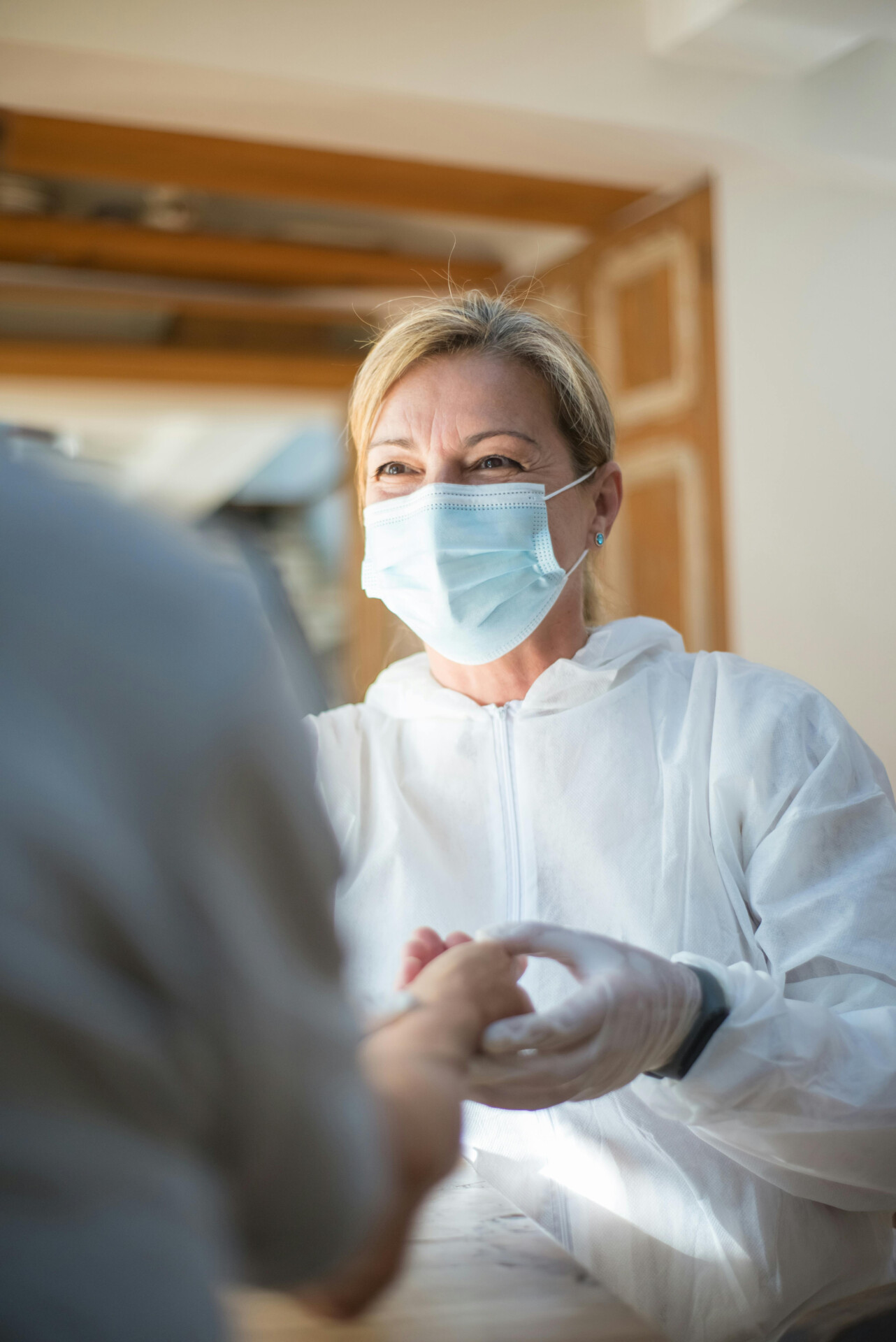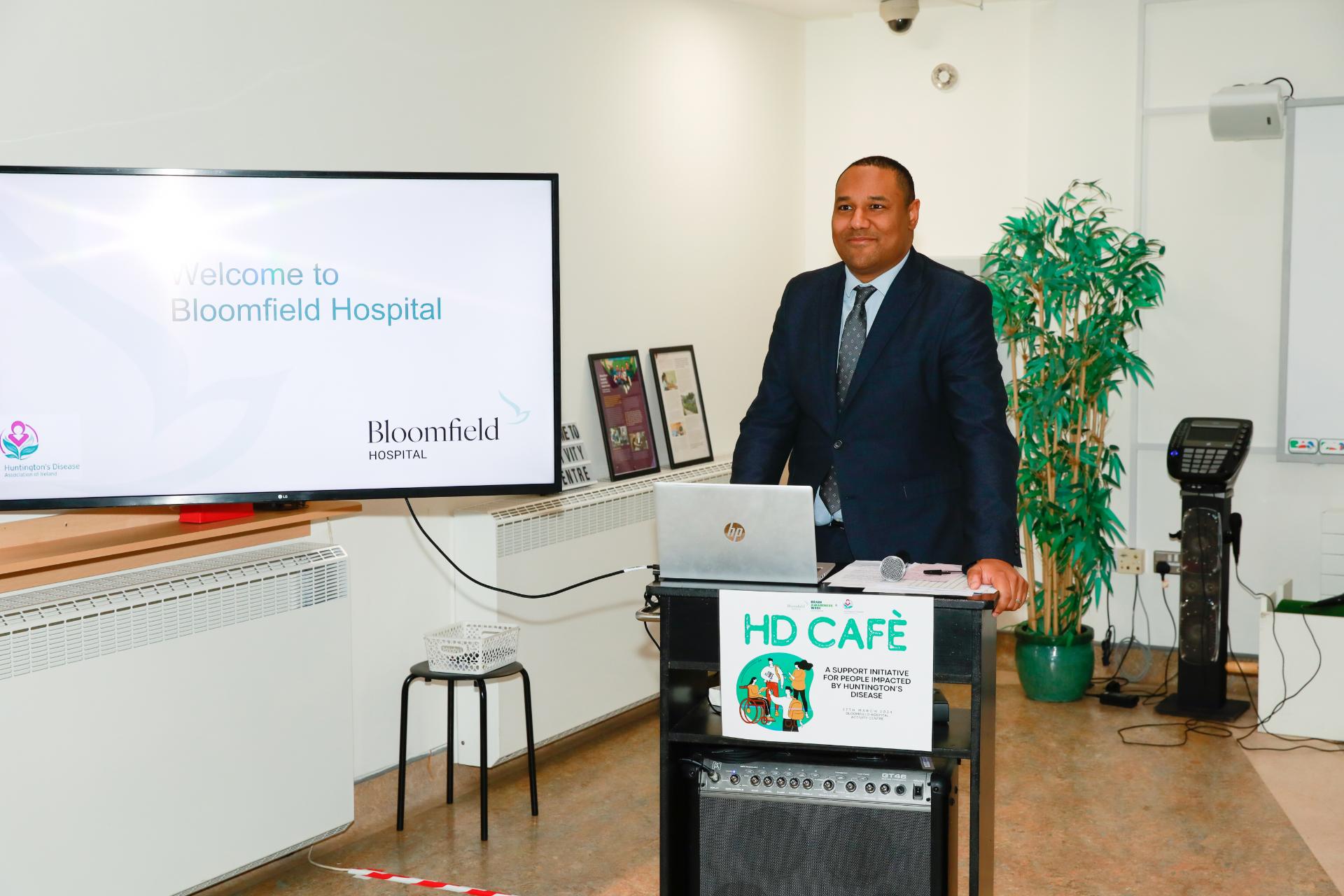Services
For more than 200 years, Bloomfield Hospital has provided specialised treatment, care, and support to adults with a range of severe and enduring mental health issues and neuropsychiatric disorders including Huntington’s disease, Alzheimer’s disease, dementia, schizophrenia, and Parkinson’s disease.

Reliable Human Caring



Over this time, we have cultivated a reputation for excellence in our inpatient services. Of the many adults in Ireland who may develop severe mental health issues at some point in their lives, those with the most complex and challenging needs are referred to us at Bloomfield.
We have developed a proven track record and positive reputation as a provider of the care and support that these patients need and deserve:
Mental Health & Neuropsychiatric Services
At our state-of-the-art facilities in Rathfarnham, we provide multidisciplinary team inpatient services under the following areas:
Specialised Rehabilitation Unit (SRU)
Specialised Rehabilitation Unit (SRU)
Huntington’s Disease
Huntington’s Disease
Early Onset Dementia
Early Onset Dementia
Severe and Enduring Mental Health Needs
Severe and Enduring Mental Health Needs
Other Neurological & Neurodegenerative Disorders
Other Neurological & Neurodegenerative Disorders


Inpatient Care
Inpatient services at Bloomfield Hospital are tailored to the needs of the individual. Inpatient services are provided in two distinct specialties: mental health / psychiatry services and mental health / neuropsychiatry services.
We also provide national specialist rehabilitation services in Ireland based upon a national model of care.
Bloomfield Hospital is a national service that provides the high level of specialised care required for people with Huntington’s disease.
We have a frontotemporal dementia high-dependency inpatient unit.
Bloomfield Hospital caters for people with conditions like dementia, Alzheimer’s disease, motor neurone disease, and Parkinson’s disease.
All inpatient care is provided by our on-site multidisciplinary teams that include psychiatrists, psychologists, neuropsychologists, occupational therapists, physiotherapists, nurses, social workers, pharmacists, and general practitioners.
Our person-centred care approach includes a comprehensive and tailored care plan with treatment recommendations for each individual. This method includes building agreement with the individual concerned, their family, and other caregivers to design an appropriate treatment and care plan.
Our aim is to improve the quality of life of those we care for and to give them and their families the therapeutic support they need to facilitate their journey together. We are a second home for these people, and our door is always open.

High-dependency unit
Bloomfield Hospital’s high-dependency unit is a regional service specifically designed to care for people who have long-term complex psychiatric conditions with challenging behaviour. These include personality disorder traits that may increase the risk of harm to the patient or others.
These conditions may include schizophrenia or other psychotic disorders, bipolar affective disorder, obsessive-compulsive disorder, and other affective disorders, as well as severe depression. People on this unit may also have secondary diagnoses of personality disorders or substance misuse.
In addition, the unit caters for challenging dementia presentations and neurocognitive disorders such as early onset dementia, vascular dementia, dementia with Lewy bodies, frontotemporal dementia, and alcohol-related dementia, etc.
Our multidisciplinary team assesses the needs of each patient, devising and implementing bespoke treatment programmes to optimise social engagement and activity, improve physical and mental health and minimise risk and agitated behaviours. Programmes are tracked to assess progress and the impact of interventions, and treatment takes place in a safe environment where residents can feel engaged, relaxed and safe.

Later life psychiatry
The aim of the later-life psychiatry service is to provide assessment and management of mental illness for those over the age of 65.
The inpatient service has a variety of therapeutic groups and activities in addition to individual programmes. These are specially designed by on-site specialists who are committed to providing long-term care for residents in this demographic, who require specific support to help them deal with their challenges.
Set at the foot of the Dublin mountains, the sprawling grounds of Bloomfield Hospital also contribute to a sense of rest and relaxation as well as the opportunity for physical exercise and time spent outdoors where desired.

Hospital facilities
At Bloomfield Hospital, residents benefit from a state-of-the-art environment that is designed for comfort and individualised care.
Our modern facilities include extensive dining facilities, private consultation rooms, en-suite bedrooms, bright and accessible therapy suites, a well-stocked library, and a variety of indoor and outdoor amenities including landscaped and sensory gardens with private walkways and panoramic views.
Our therapy spaces offer privacy and are bright and accessible to facilitate the pastoral requirements of each individual. We believe in making Bloomfield more than a hospital; it is to be a second home for our residents, a place where they are made to feel comfortable, welcome, and cared for.

Referrals to Bloomfield Hospital
Referrals to Bloomfield Hospital are welcome from both national and regional services for patients with significant therapeutic needs, who would benefit from patient-centred interventions, and exhibit challenging behaviours, aggression, agitation, or psychiatric symptoms such as depression or anxiety. We also accept referrals for individuals with acute psychiatric conditions that may require stabilisation before transitioning into our programs.
Funded referrals are accepted from acute hospitals, general and mental health services, the Central Mental Hospital, and prison services. Referrers must complete a referral form along with a brief risk assessment and provide relevant psychiatric, neurological, and forensic reports, assessments, imaging results, and funding details. Upon receipt and confirmation of funding, our clinical team conducts an initial assessment to prioritise areas for further exploration upon admission.

HD Café
Bloomfield Hospital introduced the Huntington’s Disease Café to support people affected by Huntington’s disease along with their families and those who care for them. It’s an opportunity to meet people, access new information and enjoy some tea and cakes with other people in the HD community.
Café events are held regularly in conjunction with the Huntington’s Disease Association of Ireland (HDAI). For more information, get in touch with us via email info@bloomfield.ie.

Research, Education, Training and Affiliations
We are committed to building a learning bank as opportunities for research, innovation,teaching, and affiliation attract excellent clinical staff and provide the best patient care environment.
We are growing and strengthening our partnerships with universities and third level institutions including our current arrangements with Trinity College Dublin (TCD) and University College Dublin (UCD) as we move towards the development of a Huntington’s Disease (HD) centre of excellence. We are committed to partnering with staff, professional colleges, and academic institutions in facilitating a dynamic education, innovation, and research environment.
We continue to develop educational and research linkages across other independent mental health hospitals, HSE-managed mental health services, and Tallaght University Hospital, supported by joint academic appointments in appropriate areas.
Our links and synergies with our overseas partners, in particular Topaz Overduin in the Netherlands, Scottish Huntington’s Association and the European Huntington’s Disease Network are a key compnenent in facilitating research innovation and teaching. In addition, we are increasing our collaboration with the Irish Hospice Foundation and Our Lady’s Hospice Harold’s Cross.

Affiliations
Research, education, and training is a key part of Bloomfield Hospital’s leadership in care innovation. We are committed to educating the next generation about best practices in the treatment and care of severe and enduring mental health conditions.
As a result, we’ve formed a number of important affiliations aimed at expanding our knowledge, sharing our findings, and improving the quality of life for our residents.
Our affiliation with Trinity College Dublin brings students from a variety of disciplines to work and study with us, including student nurses, psychologists, physiotherapists and trainee occupational therapists.
We also work closely with University College Dublin (in relation to their Higher Diploma Mental Health Nursing Programme,) and OLCH Hospice (in the field of palliative care awareness and training).
In 2023 we initiated a memorandum of understanding with the National Lead for Early Dementia and the Neurology Department of Tallaght University Hospital, which is the Irish representative hospital in the European Reference Network – Rare Neurological Diseases. This agreement has been established to develop a close functional linkage between our departments, helping to better serve people affected by these challenges.
Bloomfield Hospital is also engaged in transnational research programmes through the European JPND (Joint Programme – Neurodegenerative Disease Research), among many others.